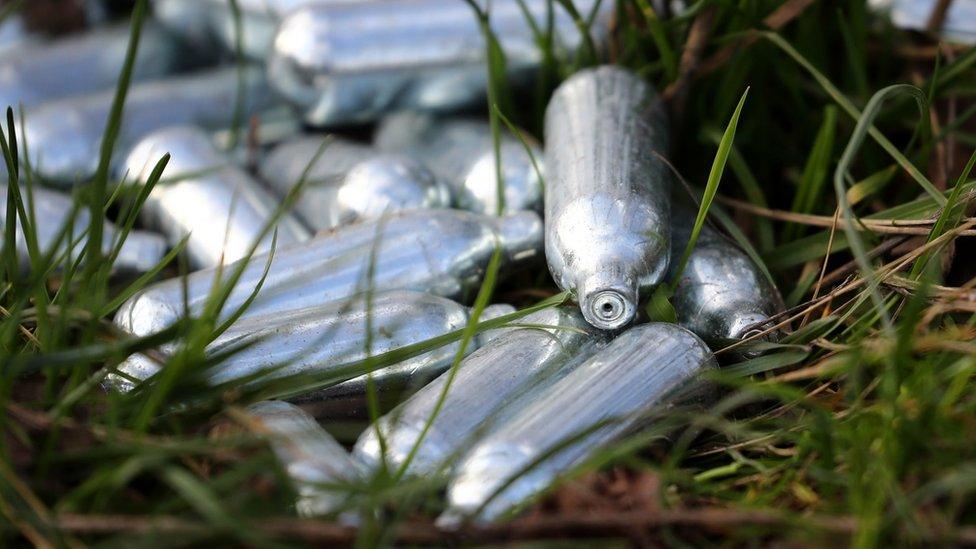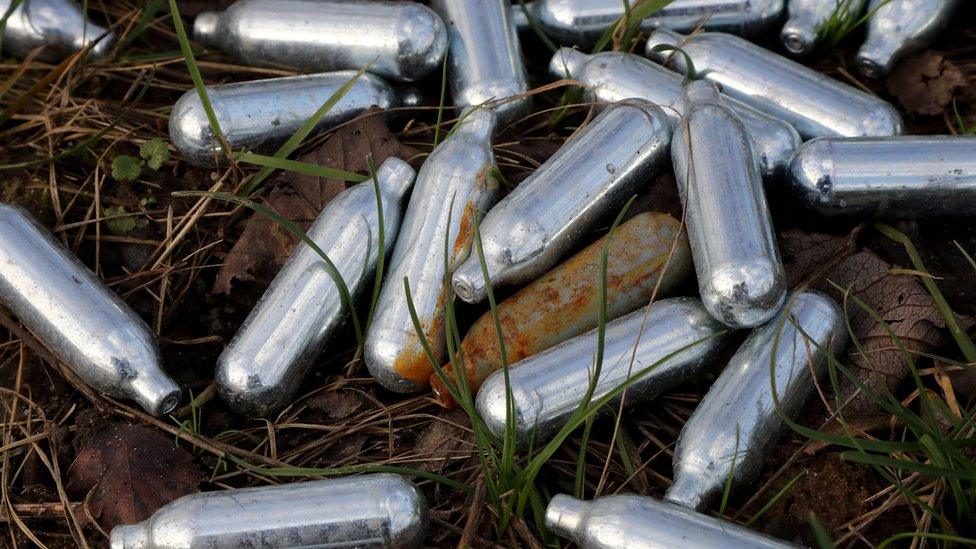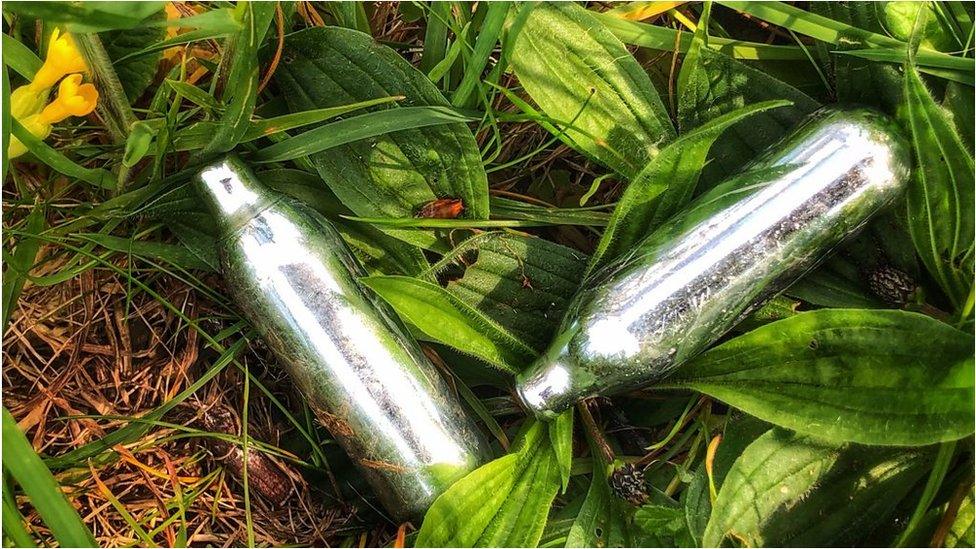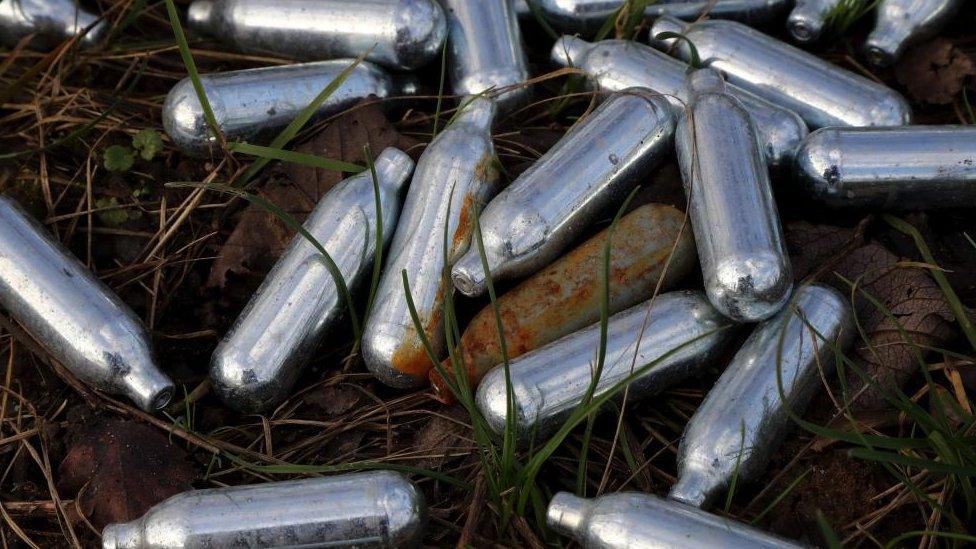Nitrous oxide: Laughing gas possession to be illegal in three weeks
- Published

Possessing laughing gas will be made illegal in three weeks, with those who repeatedly misuse the drug facing up to two years in prison.
And dealers of nitrous oxide will face up to 14 years behind bars, the Home Office said.
The ban will come into force on November 8, and will make nitrous oxide a controlled Class C drug under the Misuse of Drugs Act 1971.
It is one of the most commonly used recreational drugs among young people.
It comes after MPs voted overwhelmingly to have it categorised as a class C drug, by 404 votes to 36, last month.
Critics have previously warned against a ban, saying it could stop users seeking medical help, but the government says it is clamping down on antisocial behaviour and drug taking in public.
The drug is a colourless gas commonly used as a painkiller in medicine and dentistry, and for producing whipped cream in cooking.
When used as a recreational drug it is inhaled, and can make people feel relaxed, giggly, light-headed or dizzy.
The substance can cause headaches and make some users anxious or paranoid, while over-use can make people faint or lose consciousness.
Intensive, frequent use can also lead to vitamin B12 deficiency which can cause neurological damage, according to a government report quoting, external several scientific studies.
Penalties for possessing the substance could include an unlimited fine, community service, or a caution, and for "repeat serious offenders", a prison sentence of up to two years, the Home Office said.
And the maximum sentence for production or supply of the drug for unlawful purposes will be 14 years.
There will be exemptions for using nitrous oxide for legitimate reasons, such as in maternity wards for pain relief during labour or in catering.
People will not be required to carry licences but will need to demonstrate they are lawfully in possession of the substance and not intending to use it for psychoactive effects.
And the government says legitimate suppliers of nitrous oxide must not be "reckless" as to whether someone is purchasing the substance to misuse it, adding: "Turning a blind eye will be committing an offence."
Crime and Policing Minister Chris Philp said: "We are delivering on the promise we made to take a zero-tolerance approach towards antisocial behaviour and flagrant drug taking in our public spaces.
"Abuse of nitrous oxide is also dangerous to people's health and today we are sending a clear signal to young people that there are consequences for misusing drugs. Both users and dealers will face the full force of the law for their actions."
The chief executive of the Night-time Industries Association, Michael Kill, welcomed the ban but said it must come with a broader education and harm reduction strategy on drugs.
"The burden on businesses has been substantial, as they've contended with mounting pressure from authorities and residents due to the proliferation of discarded silver canisters on the streets.
"This predicament has not only posed risks to the well-being of both staff and patrons but has also fostered an environment conducive to petty crime, anti-social behaviour, and the activities of organised crime syndicates."
Related topics
- Published12 September 2023

- Published6 September 2023

- Published31 August 2023
